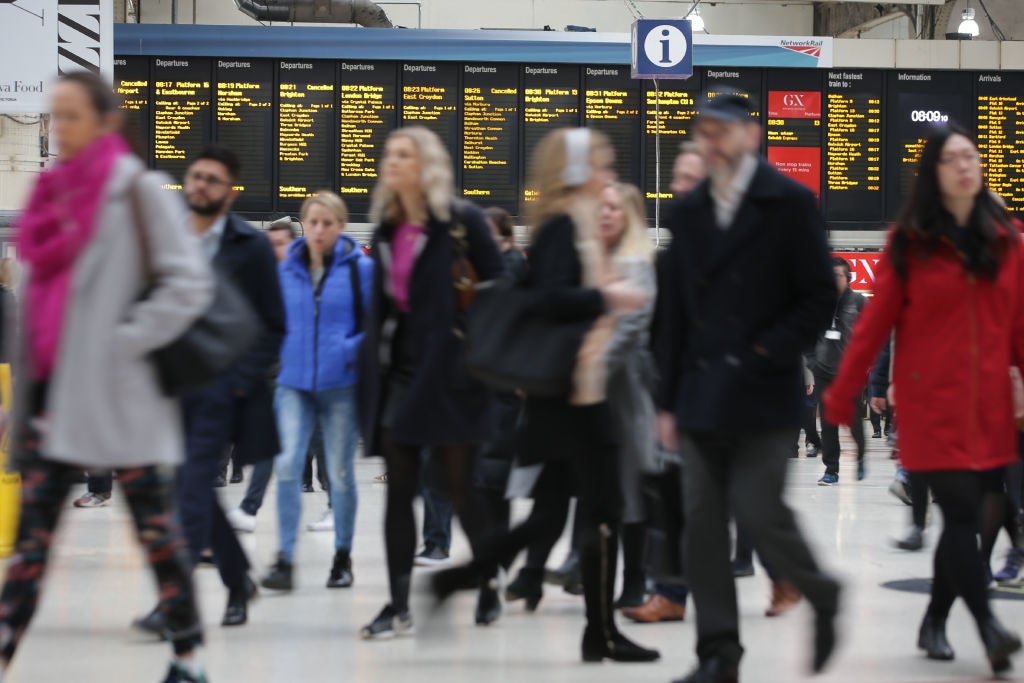Protests planned across the country as biggest rail fare rise in five years comes into effect
Ticket prices will rise 3.4 per cent on average from 2 January as unions accuse private train companies of ‘raking it in’

Dozens of demonstrations will take place across the country on Tuesday in protest against the biggest rail fare increase in five years.
The Rail and Maritime Transport union (RMT) is organising protests at 40 stations on the day ticket prices are raised by an average of 3.4 per cent – higher than current inflation and much more than last year’s 1.1 per cent increase.
It marks the highest increase since January 2013. Season ticket prices will rise by 3.6 per cent.
RMT says the increase is more than double the amount by which earnings have increased in the last year, and that someone earning the National Living Wage could now spend a fifth of their income on fares.
Demonstrations will take place at number of major stations, including London Kings Cross, Manchester Piccadilly and Birmingham New Street. RMT members will hand out chocolates to commuters “to sweeten the bitter pill of the fare rises”.
Mick Cash, the union’s general secretary, said: “It’s another new year and yet another hike in fares for passengers. These eye-watering increases will make it even harder for workers to get by.
“Whilst workers are struggling, the private train companies are raking it in. As we enter the 25th anniversary of railway privatisation legislation, the need for public ownership of rail has never been more popular or necessary.”
The biggest price rise will be on trains operated by Northern, which is raising fares by 4.7 per cent, closely followed by the TransPennine Express at 4.6 per cent.
Train companies and government ministers say fare rises are needed to maintain investment in Britain’s railways.

A Department for Transport spokesperson said: “We are investing in the biggest modernisation of our railways since the Victorian times to improve services for passengers – providing faster and better, more comfortable trains with extra seats.
“This includes the first trains running though London on the Crossrail project, an entirely new Thameslink rail service and continuing work on the transformative Great North Rail Project.
“We keep fare prices under constant review and the price rises for this year are capped in line with inflation, with 97p out of every £1 paid going back into the railway.”
The fare rise comes into effect as a new investigation reveals Britain’s current train carriages are the oldest since records began.
Analysis of Office of Road and Rail statistics by the Press Association found passengers are travelling in carriages that were typically built in the mid-1990s. The average carriage in use is 21.1 years old – 60 per cent older than in 2006.
Join our commenting forum
Join thought-provoking conversations, follow other Independent readers and see their replies
Comments
Bookmark popover
Removed from bookmarks